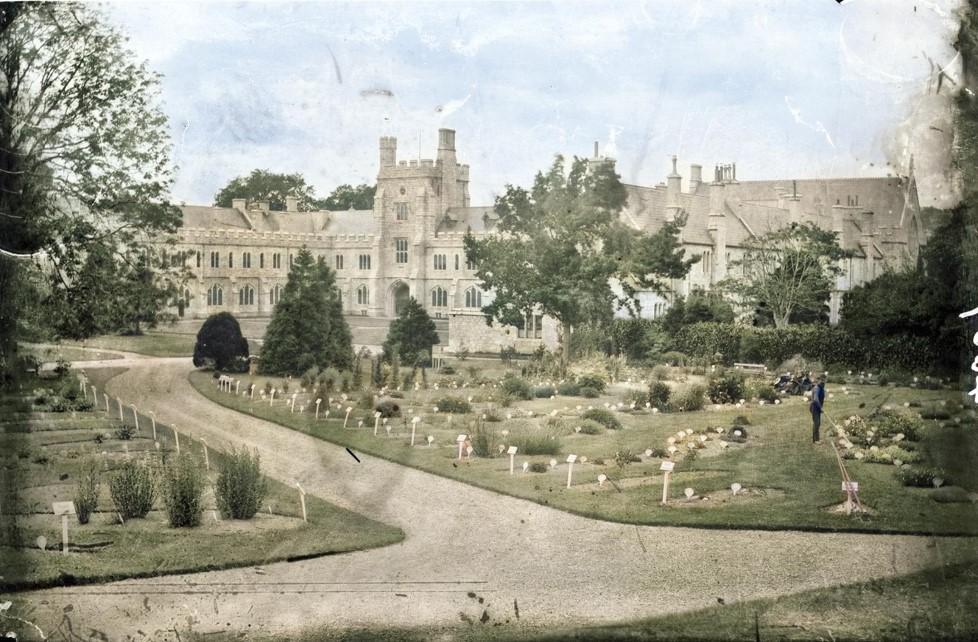The UCC Arboretum was established as a teaching and research tool for Queen's College Cork and, ultimately, University College Cork. Despite the collection being significantly altered through the years, its role in supporting the university’s academic work has remained steadfast.
Botanic gardens and arboreta have been used for centuries as educational tools, with a good body of evidence supporting that learning in such spaces has significant benefits for short and long-term knowledge gain. The work of the UCC Arboretum team is based on the principle that arboreta represent a collection of living organisms acting as ambassadors for their often endangered, wild relatives. Teaching and learning in such settings "can open up opportunities to revisit complex questions about human relationships to, and impacts on, other species" (Sanders et al., 2018).

In crafting the teaching and learning approach, attention is given to the UCC Academic Strategy, a priority of which is to deliver 'outstanding, student-centred teaching and learning experiences, with a renewed, responsive and research-based curriculum at its core'.
Currently, activities within the UCC Arboretum are embedded within two undergraduate modules, one in the School of Biology, Earth and Environmental Science (BEES): PS3019, and another in the School of Pharmacy: PF3016. These two modules, focussing on medicinal and other industrial uses of bioactive plant compounds (e.g., in brewing, food production, etc.), allow the team's research interests to be directly rooted in the curriculum, as envisioned by the UCC Academic Strategy. The team has a range of research interests but pertinent to this activity, Dr Doyle Prestwich has an active research group that looks at the production of bioactive plant products through conventional and biotechnological approaches. Dr Eoin Lettice has an active research group looking at the benefits of urban trees for sustainable development and mitigating the effects of climate change.
Learning in green spaces has significant benefits for student performance and well-being. UCC students who participated in activities within the UCC arboretum as part of their studies were optimistic about their experiences:
Student A: "I had never thought of trees in UCC as being of pharmaceutical/research importance, and thus I found it really interesting to learn!"
Student B: "Possibly the most enjoyable aspect of any module we’ve had so far."
The arboretum team is exploring other modules and courses where the tree collection can be utilised within UCC.
Another project linked to the UCC arboretum is the PhenoClimate project.
